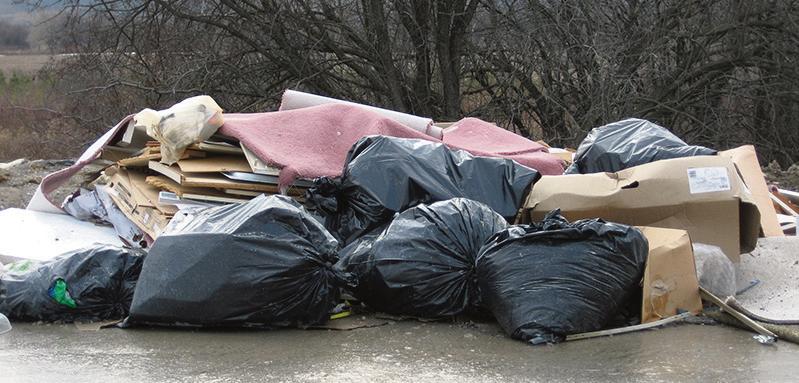ENFORCEMENT officers will soon be able to seize vehicles suspected of being involved in fly-tipping thanks to enhanced powers to crack down on waste crime, Resource Management Minister Dan Rogerson announced today.
The new legislation, will make it easier for local authorities, the Environment Agency and Natural Resources Wales to stop, search and seize vehicles suspected of being involved in waste crime. In 2013/14, local authorities dealt with 852,000 incidents of fly-tipping, costing an estimated £45.2 million in clearance costs.
This marks an important milestone in the government’s Waste Crime Action Plan and follows a consultation launched last week on enhancing enforcement powers to tackle waste crime.
Resource Management Minister Dan Rogerson said: “Fly-tipping blights communities and poses a risk to human health, which is why we are supporting the seizure of vehicles suspected of involvement in this pernicious crime. The removal of their means to dispose of waste illegally will act as a greater deterrent to persistent offenders.”
The new regulations follow the introduction of a tougher sentencing guideline for environmental offences announced last year, which should result in larger fines for serious offenders. The new seizure powers, expected to be in force from 6 April, include:
Allowing enforcement authorities to stop, search and instantly seize vehicles suspected of being involved with waste crime.
Broadening the range of waste offences for which a vehicle can be seized by enforcement authorities to include:
Breaches of the waste duty of care.
Operation of an illegal waste site.
Carrying controlled waste while unauthorised to do so
Farmers have welcomed the crackdown, Christine Jones an NFU Cymru county chair said: “Fly-tipping is an issue that impacts on the lives and businesses of many farmers in Wales and we believe it is wholly unfair that farmers have to clear up the mess and pick up the bill for waste illegally dumped on their land, therefore the changes suggested should have a positive impact of the incidence of fly-tipping and hopefully act as a deterrent to those who commit such crimes.”
Sounding a note of caution, she added: “However we need to ensure that these changes do not inadvertently impact members. Farmers who are unaware of their Duty of Care waste carrier responsibilities could get caught by the above enforcements. These changes will need to be clearly communicated and pragmatically enforced by local authorities and Natural Resources Wales.”
Crack down on fly tipping














Add Comment